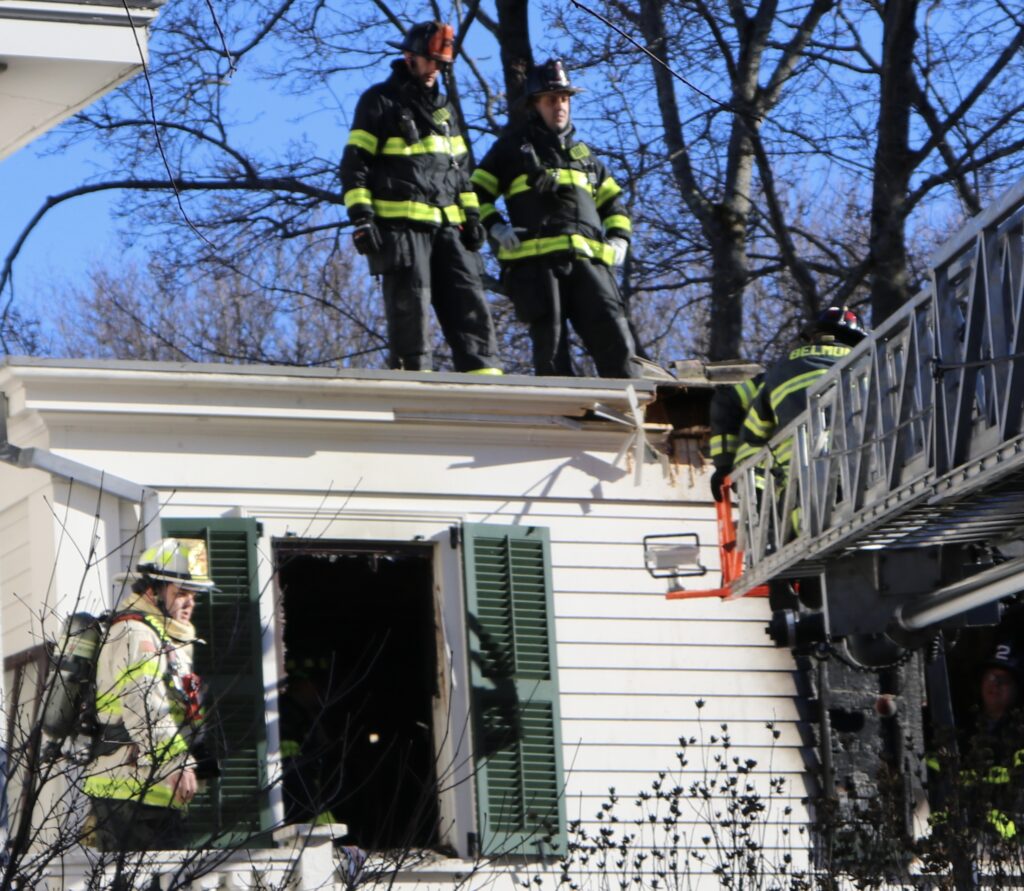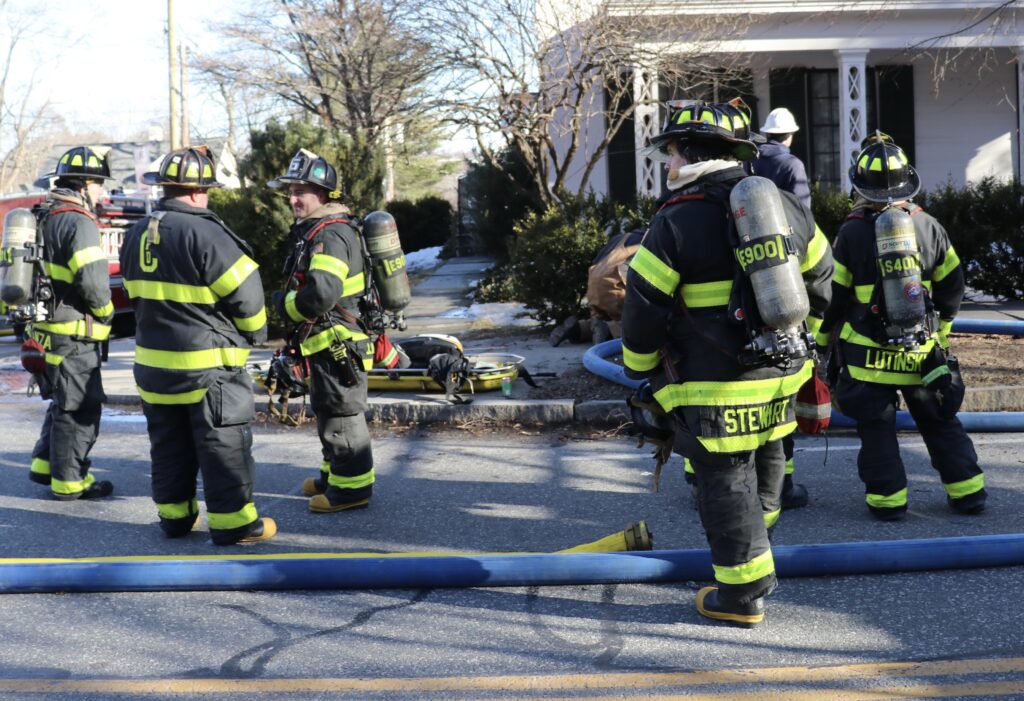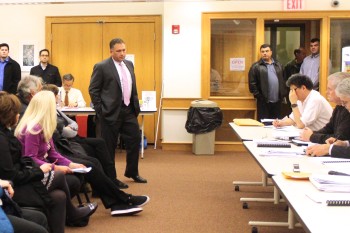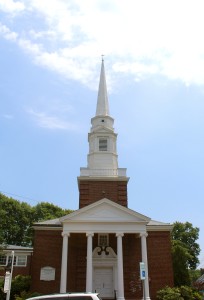Photo: The fire at the corner of Pleasant Street and Alexander Avenue seriously damaged a historic house.
A historic 19th-century structure at the corner of Pleasant Street and Alexander Avenue was seriously damaged by a two-alarm fire that brought out multiple fire departments to Belmont on Sunday afternoon, March 2.
According to Belmont Fire Capt. Robert Wollner, the town’s dispatch center, received a 911 call at 1:48 p.m. from an unknown caller about a fire at 592 Pleasant St. When fire engines arrived from the nearby Belmont Center Firehouse, “smoke and fire were showing from the second floor,” said Wollner. Firefighters discovered that the two occupants in the house had escaped and were not injured.


A second alarm was soon made, bringing all of Belmont’s equipment to the site and mutual aid from Cambridge, Arlington, and Waltham, which covered both of Belmont’s firehouses.
Wollner said the fire left the dwelling “with a lot of smoke and water damage” and will force the five residents to find other accommodations “for a while” as the house – a 13-room Colonial built in 1850 and remodeled in 2001 – must undergo significant repairs.

